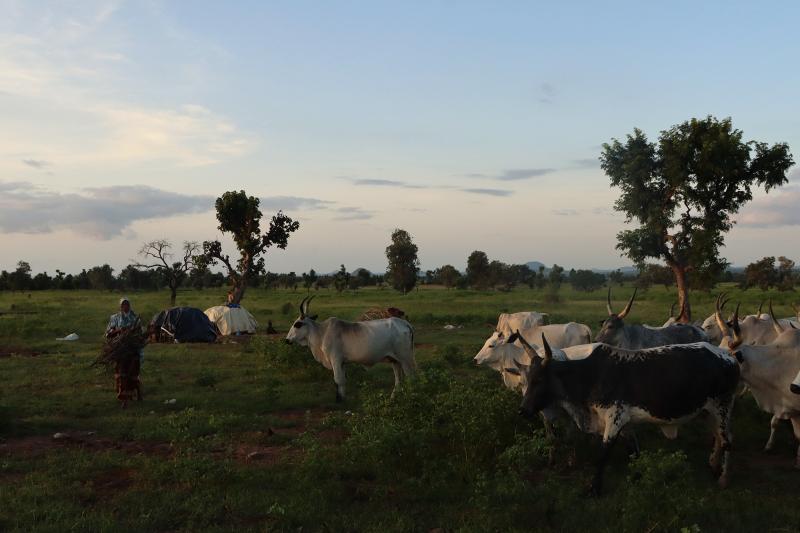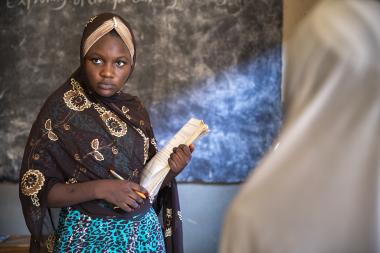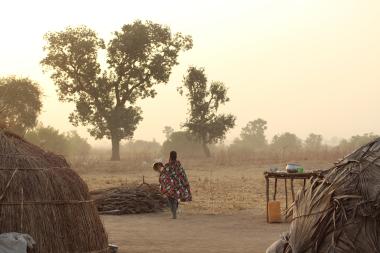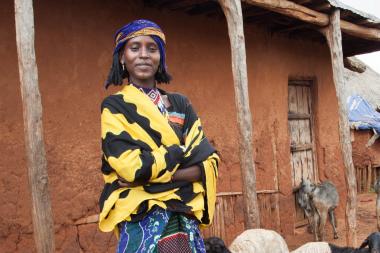Youth in farmer–herder conflicts: Case studies from Sudan and Nigeria
This report explores the role of youth in farmer-herder conflict, based on case studies from Sudan and Nigeria.
Youth are significantly under-represented in the literature on farmer–herder conflict in Africa. When discussed, they are described mainly as victims or perpetrators, rather than as actors with multifaceted roles. Female youth are almost never mentioned. Yet male and female youth are the majority population on the continent and make significant contributions to farming and pastoralism, as well as their communities.
This report addresses this gap. It explores the experiences and roles of male and female youth in conflict, as well as the impacts of conflict on them. Sudan in eastern Africa and Nigeria in western Africa were selected for contrast.
Focus group discussions and key informant interviews were conducted in two case study locations, in two countries: Azaza Sogora village in Gadarif State, Sudan, and Jangargari village in Nasarawa State, Nigeria. Transcripts were analysed through content analysis, and key insights were distilled.
Findings include:
- Young men and women are an active, informed and vocal demographic in both locations. They act positively and negatively in conflict, and their involvement extends beyond the perpetrator/victim dichotomy. Despite their significant roles, young men and women across case studies remain excluded from formal and informal conflict management and decision-making.
- In both contexts, young men and women make significant contributions to farming and pastoralism and mainly depend on these for their livelihoods and food security. They suffer considerable losses from conflict, adding to already difficult economic circumstances. Furthermore, options to compensate beyond subsistence farming, livestock rearing and menial labour are limited. In both countries, many young men have out-migrated, keeping them away from their families for long periods, leaving women and the elderly behind with greater responsibilities.
- Young women’s local coping options are limited and demanding and add to already considerable workloads. Given social and cultural norms, their mobility is more constrained than that of men. Access to finance and other inputs has, however, increased some women’s resilience and ability to manoeuvre, as demonstrated among women farmers in Sudan.
Policy implications include:
- Involving youth deliberately in processes to address the root causes of farmer–herder conflict (for example, in inclusive land allocation and planning), and in conflict resolution and decision-making processes.
- Supporting youth-led peace-building initiatives, particularly those that work across ethnic divides.
- Leveraging digital platforms to enable the participation of youth in decision-making and peace-building through non-traditional means.
- Investing in gender-responsive skill-building and youth access to inputs and opportunities beyond subsistence agriculture and menial labour, informed by local youth, as well as investing in education, healthcare and social services more broadly to enhance well-being and expand young people’s options for participation in society.
- Expanding access to credit for women of all ages in contexts where this has shown promise.
- Conducting research that gives greater attention to the roles of young women and men in farmer–herder conflict, and to identifying incentives that drive youth (particularly men) towards conflict and violence and also towards peace in the same context.



